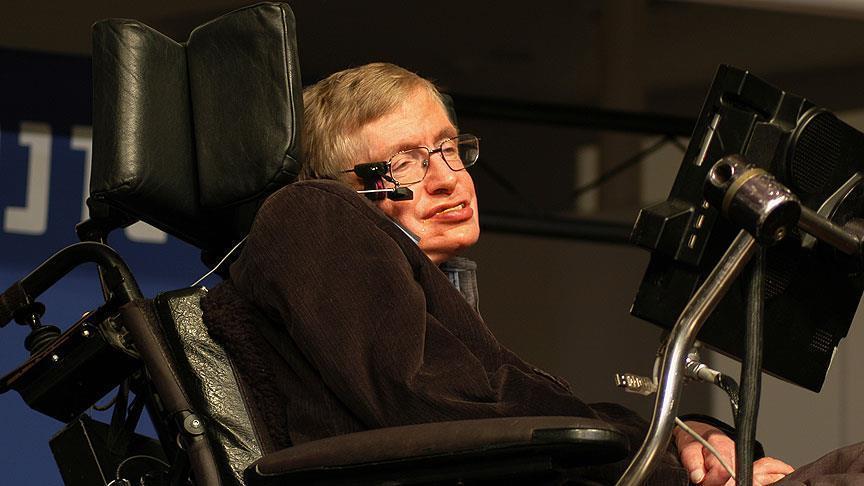Stephen Hawking, scientist who stood up for Palestine
Theoretical physicist became an icon for Palestinians when he joined a boycott campaign against Israeli policy in 2013

Colombia
By Sergio García
BOGOTA, Colombia
When scientist Stephen Hawking died early Wednesday, no one regretted his passing more than the Palestinian community.
The theoretical physicist is remembered as an icon of global impact who publicly opposed Israel's policies towards Palestine and joined an academic boycott against Tel Aviv in 2013.
The Palestinian community remembers Hawking as a key figure in the boycott, which was joined by prominent institutions such as the British Committee for Universities of Palestine, an organization of UK-based academics that supported the academic boycott of Israel.
That year, the British scientist rejected an invitation from former Israeli President Shimon Peres to attend the President’s Conference in Jerusalem, an academic event that aimed to bring together researchers and political figures and coincided with the Israeli leader’s 90th birthday celebrations.
Hawking sent Peres a letter explaining that his choice not to attend the conference was the result of his “independent decision to respect the boycott based on his knowledge of Palestine and on the unanimous advice of his own academic contacts”.
Following Hawking’s death, the Palestinian Federation of Chile said the scientist achieved an important victory in the campaign of the Boycott, Divestments and Sanctions (BDS) movement against Israeli academic institutions.
The organization said Hawking supported the Palestinian nonviolent resistance movement and he had called on the international community to sanction Israel for its occupation.
“As Palestinians, we pay tribute to Stephen Hawking, an infinite supporter of our cause who refused to give lectures in Israel, denouncing its policy of apartheid. Rest in peace,” Rafael Araya Masry, president of the Confederation of Palestinian Communities in Latin America and the Caribbean, said on social media.
The Palestine Liberation Organization (PLO) also referred to the scientist as an “exceptionally courageous person” and said all Palestinians had reacted to the news of his death with sadness.
“We remember his principled position in challenging the Israeli occupation of Palestine and his refusal to appear at the [President’s] conference in 2013, not to be an accomplice to this cruel and illegal occupation. He will be missed worldwide,” the PLO said in a press release.
Hawking’s boycott of the conference, which was attended by politicians such as Bill Clinton, Tony Blair and Mikhail Gorbachev and artists such as Barbra Streisand, was key in exposing the Palestinian cause to the world.
The boycott was not the only time that Hawking joined the Palestinian cause. In 2009, he condemned an Israeli military operation in Gaza that he described as disproportionate. The situation is “like that in South Africa before 1990. It cannot continue,” he said in an interview with Al Jazeera.
Even in his last year of life, Hawking urged his millions of followers on Facebook to donate money to help fund a series of physics lectures for Palestinian graduate students in the West Bank.
The British scientist died at the age of 76 at his home in Cambridge, England after suffering for 55 years from the motor neurone disease amyotrophic lateral sclerosis (ALS). He was best known for his work on black holes and his theory of relativity and wrote several popular science books including A Brief History of Time.
*Daniela Mendoza contributed to this report
Anadolu Agency website contains only a portion of the news stories offered to subscribers in the AA News Broadcasting System (HAS), and in summarized form. Please contact us for subscription options.







